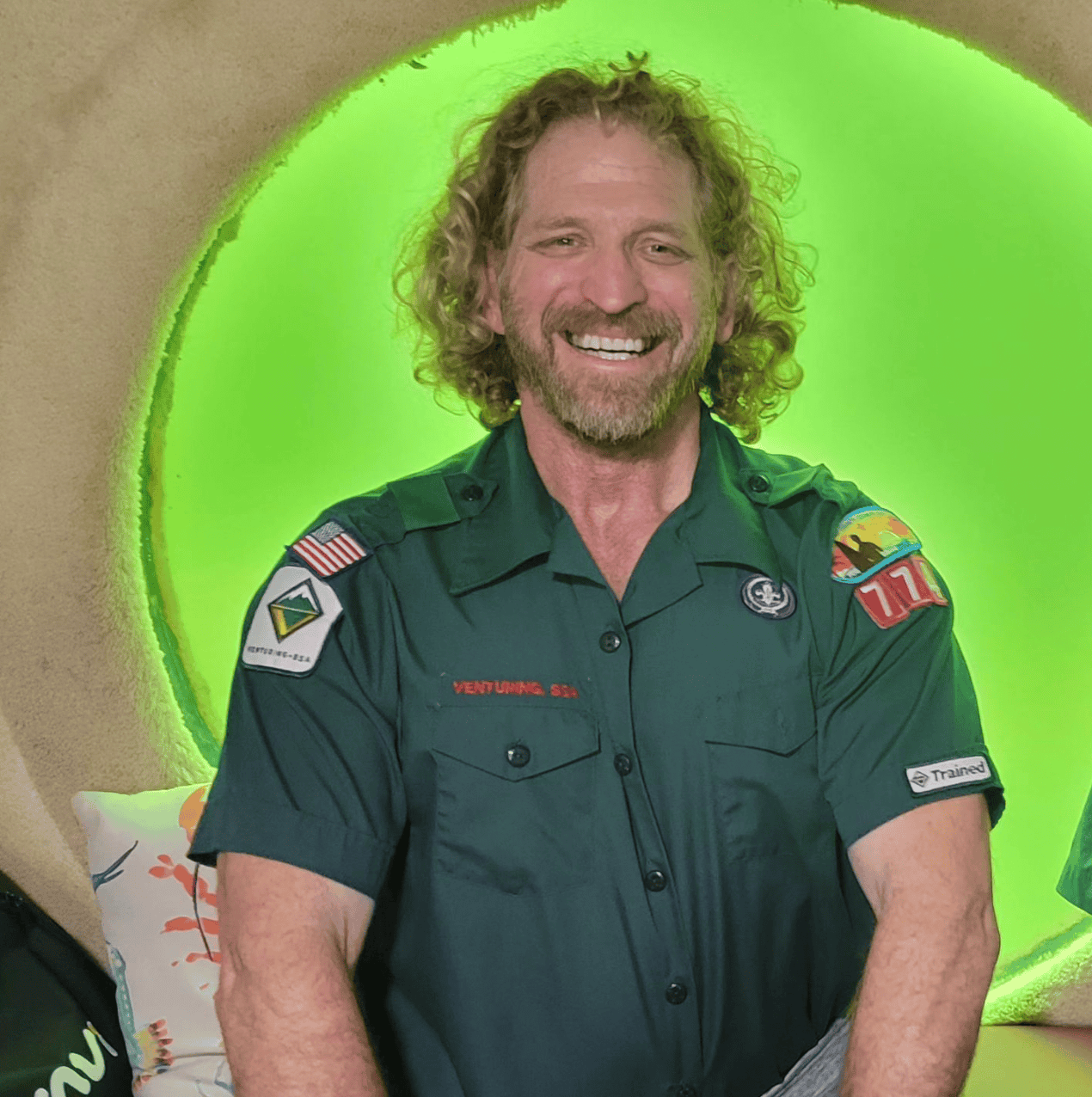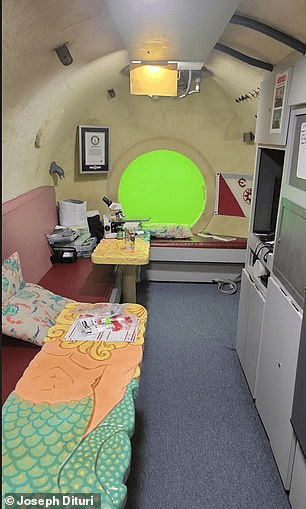100 Days Under Water: The Drastic Change in His Epigenetic Clock and the Biological Age Test

In an extraordinary blend of deep-sea adventure and cutting-edge scientific inquiry, NASA scientist Dr. Joseph Dituri embarked on a groundbreaking mission: to spend 100 days living beneath the ocean’s surface with the ambitious goal of reversing the aging process. Biological age tests, which measure factors like DNA methylation, epigenetic clocks, and chronic inflammation to determine biological age, were crucial in assessing the study’s outcomes. Biological age, which reflects the body’s internal aging based on factors such as lifestyle, genetics, and environmental influences, was a key focus of this study, particularly in relation to epigenetic age. This experiment, which has fascinated both the scientific community and the public, aimed to explore the unique environmental conditions underwater and their potential benefits on human health and longevity. Dr. Dituri’s journey is a remarkable feat of endurance and a pioneering study that could transform our understanding of aging.
The Undersea Habitat: A Technological Marvel

Dr. Dituri’s underwater home for 100 days was an advanced subaquatic habitat located off the coast of Florida. This sophisticated structure was designed to support human life for extended periods, ensuring safety, comfort, and the ability to conduct scientific research. The habitat was equipped with the latest technology to monitor environmental conditions and maintain a stable, livable atmosphere. Key features included advanced life support systems, continuous air quality monitoring, temperature and pressure controls, and communication systems for real-time data transmission and contact with the surface.
The choice of location and habitat design was critical. The underwater environment presents unique challenges and opportunities for scientific research. The controlled conditions within the habitat allowed for precise monitoring of Dr. Dituri’s physiological responses, providing invaluable data on how extended exposure to higher pressure and increased oxygen levels could impact the human body. To ensure the accuracy of the data, multiple tests were performed on each sample collected during the experiment.
The Hypothesis: High Pressure and Hyperoxia as Anti-Aging Agents
The core hypothesis of Dr. Dituri’s experiment was that the underwater environment’s higher pressure and increased oxygen concentration might stimulate biological processes that counteract aging. Chronological age refers to the actual time a person has been alive, while biological age reflects the state of the body and its actual aging process, taking into account genetics, lifestyle, and environmental influences. This idea is supported by existing research on hyperbaric oxygen therapy (HBOT), a medical treatment that involves breathing pure oxygen in a pressurized room or chamber. HBOT has been shown to promote healing and improve health in various conditions by enhancing oxygen delivery to tissues, reducing inflammation, and stimulating the release of growth factors and stem cells.
Epigenetic clocks, which measure DNA methylation changes, were used to assess the impact of the underwater environment on biological age.
Dr. Dituri’s experiment took this concept further, exploring whether living in a pressurized underwater environment for an extended period could have similar or even more profound effects. Continuous underwater exposure to higher pressure and increased oxygen levels was expected to provide a sustained stimulus for cellular regeneration and metabolic efficiency.
Monitoring and Data Collection: A Comprehensive Approach

Throughout the 100 days, Dr. Dituri underwent rigorous medical assessments to accurately determine changes in his body. These assessments included blood tests, cognitive evaluations, physical performance metrics, and advanced imaging techniques. The data collected provided a comprehensive overview of his physiological responses, allowing researchers to analyze the potential anti-aging effects of the underwater environment.
One of the primary areas of focus was telomere length. Telomeres, the protective caps at the ends of chromosomes, shorten with age, leading to cellular deterioration and aging. Research has shown that various interventions, including HBOT, can increase telomere length and potentially reverse some aspects of aging. Researchers measured Dr. Dituri’s telomere length before, during, and after the experiment to determine whether the underwater environment could induce similar changes.
Key Findings: Promising Indicators of Reversed Biological Age

Preliminary results from Dr. Dituri’s experiment have been encouraging. One of the most remarkable findings was the increased telomere length, suggesting a reversal of some cellular aging processes. This finding reflects improvements in Dr. Dituri’s overall health. The increase in telomere length suggests a positive shift in Dr. Dituri’s aging clock, indicating a reversal of cellular aging processes. The epigenetic clock test performed at the end of the experiment showed an age reversal of 10 years. Dr Dituri’s literally became 10 years younger than before he went under water. This finding aligns with studies on HBOT, where increased oxygen exposure has been linked to telomere lengthening and improved cellular function.
Additionally, Dr. Dituri reported significant improvements in cognitive function. Cognitive evaluations conducted during the experiment showed enhanced memory, attention, and problem-solving abilities. These improvements may be attributed to the neuroprotective effects of increased oxygen levels, which have been shown to support brain health and function.
Cardiovascular health was another critical area of focus. The underwater environment’s increased pressure and oxygen levels appeared to enhance blood circulation and heart function. Dr. Dituri’s cardiovascular metrics showed significant improvements, including blood pressure, heart rate variability, and overall heart function. These findings are supported by research on HBOT, which has demonstrated benefits for cardiovascular health by promoting angiogenesis, reducing inflammation, and improving endothelial function.
Implications for Aging Research: New Horizons in Cardiovascular Health

Dr. Dituri’s 100-day underwater odyssey represents a pioneering step in aging research. The success of this experiment opens up new avenues for exploring how alternative environments can influence human health and longevity. The insights gained from this mission could inform future research on age-related diseases and the development of new therapies to promote healthy aging. Additionally, the findings could be instrumental in developing longevity interventions that integrate genetic, epigenetic, and environmental aspects of aging. The findings from this experiment could pave the way for clinical trials to test the effectiveness of similar environmental interventions on aging.
One of the most exciting implications is the potential for developing new anti-aging treatments based on environmental exposure. If prolonged exposure to high pressure and increased oxygen levels can stimulate cellular regeneration and reverse aging, similar environments could be created on the surface for therapeutic purposes. This approach could complement existing treatments and offer a non-invasive, natural way to promote health and longevity.
The Importance of Interdisciplinary Research
Dr. Dituri’s experiment underscores the importance of interdisciplinary research, combining elements of marine biology, medicine, and space science. The role of the immune system in aging is a critical area of study, as it affects inflammation and biological age, with lifestyle choices and the IgG glycome playing significant roles. Machine learning algorithms were employed to analyze the vast data collected, providing deeper insights into the aging process. By leveraging knowledge from different fields, scientists can develop innovative approaches to some of the most pressing challenges in human health.
Marine biology provides insights into the unique properties of underwater environments, while medicine offers a deep understanding of human physiology and the mechanisms of aging. Space science, focusing on the effects of extreme environments on the human body, contributes valuable expertise in designing and conducting experiments under challenging conditions. The collaboration of these disciplines was crucial to the success of Dr. Dituri’s mission and will continue to drive future research.
Future Directions: Expanding the Scope of Underwater Research through Clinical Trials
The success of Dr. Dituri’s 100-day underwater experiment paves the way for further research into the effects of prolonged underwater living on human health. Future studies could involve larger groups of participants, different underwater environments, and varying durations of exposure to determine the optimal conditions for promoting health and longevity.
Future studies could also explore the impact of lifestyle interventions, such as diet and exercise, in combination with underwater living on aging. Investigating how lifestyle habits like these influence DNA methylation could provide valuable insights into slowing the pace of aging.
Additionally, researchers could explore the potential for combining underwater living with other interventions, such as dietary modifications, physical exercise, and pharmaceutical treatments, to enhance the anti-aging effects. Understanding how these factors interact could lead to developing comprehensive, multi-faceted approaches to aging that leverage the benefits of different interventions.
Conclusion: A New Era of Exploration

Dr. Joseph Dituri’s pioneering underwater experiment is a testament to human curiosity and the relentless pursuit of knowledge, similar to Bryan Johnson’s. His journey has expanded our understanding of the underwater world and provided valuable insights into the biology of aging. The insights gained from this experiment could lead to new strategies for extending health span, ensuring that individuals live longer and enjoy better health throughout their lives. These findings could also have significant benefits for managing weight gain and overall health. As researchers continue to analyze the data and explore the implications, this experiment could pave the way for groundbreaking advancements in promoting health and longevity.
The success of this mission highlights the potential of innovative, interdisciplinary research to transform our understanding of life itself. Dr. Dituri’s work inspires future explorers and scientists, reminding us that the quest for knowledge knows no bounds and that the secrets to a longer, healthier life may lie in the most unexpected places—even beneath the sea.


